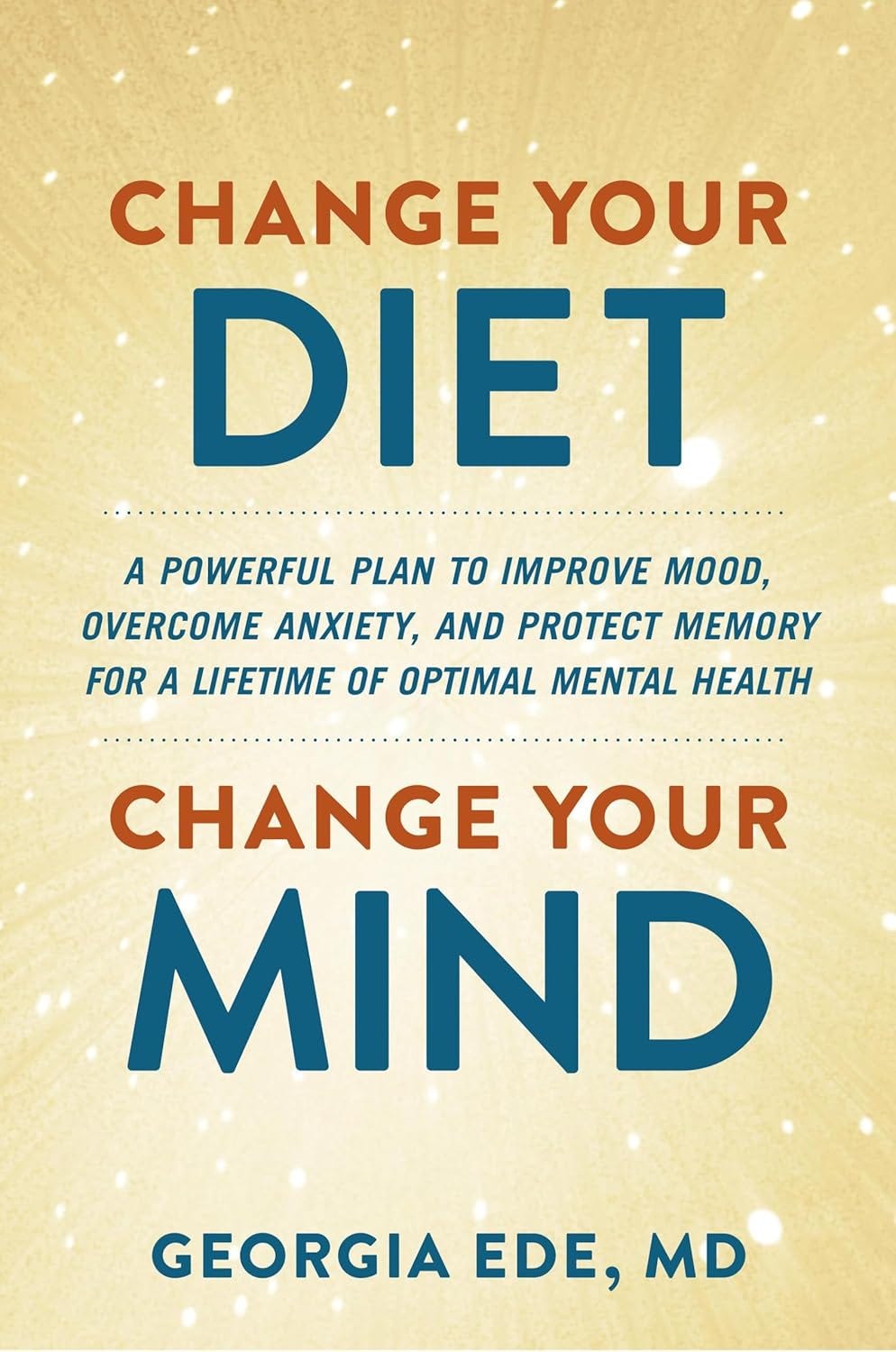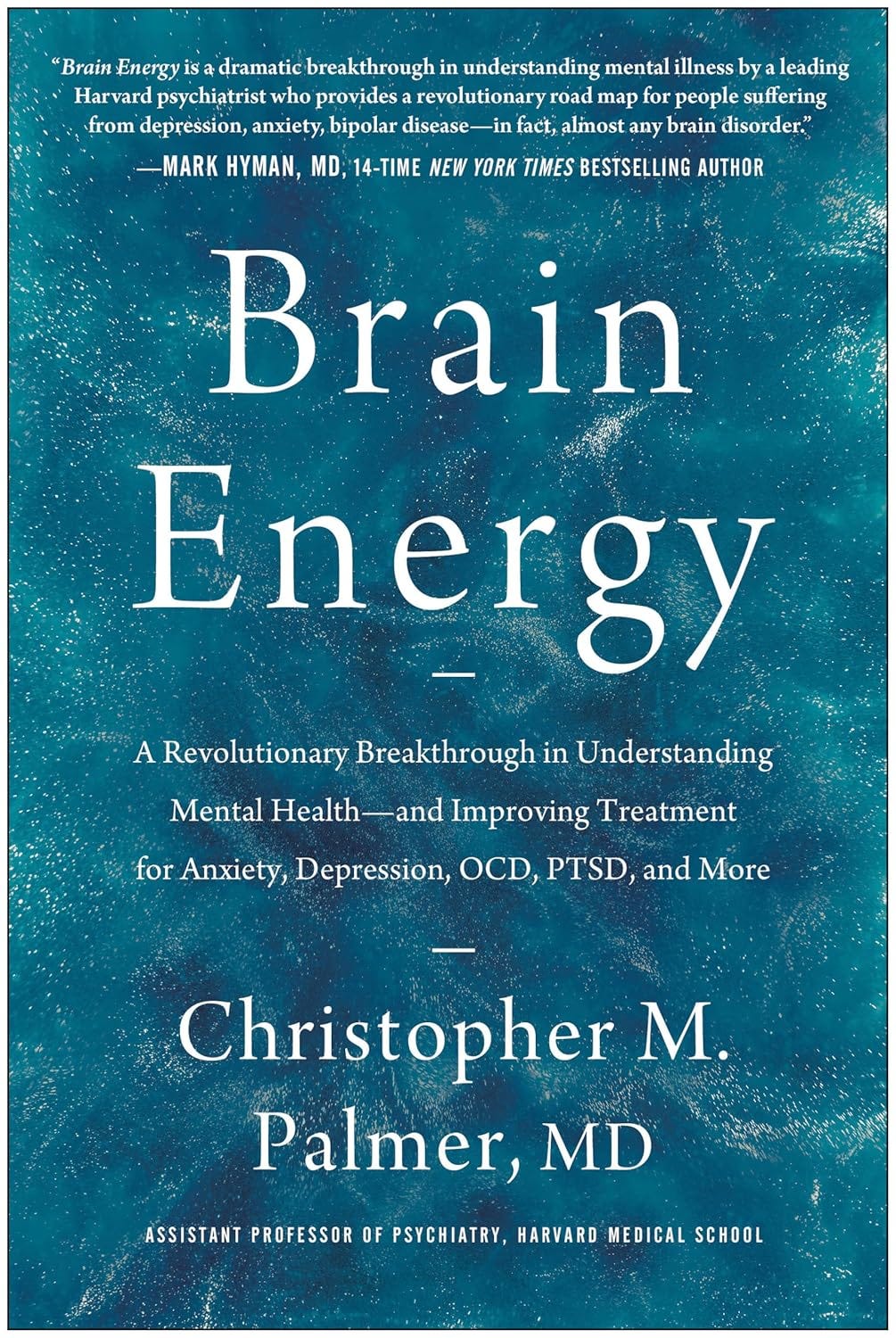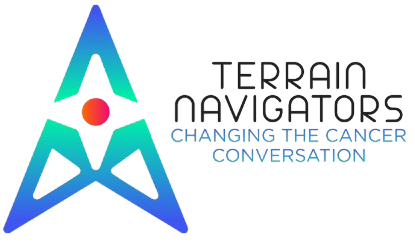By Marji Keith and Chris Joseph
Brain diseases are on the rise. Despite living in what would be considered the most medically advanced country in the world at the most enlightened time, we’re seeing alarming increases in depression, ADHD, Alzheimer’s, brain tumors, autism, and anxiety. The usual explanations—genetic factors, biochemical imbalances, or structural issues—can’t account for these steady increases. And we aren’t having much luck curing these conditions either. Instead, people are living with them and suffering with them at younger and younger ages and over the long-term.
But what if these conditions aren’t just about genetics or chemical imbalances like we’ve been taught to believe? Is there something deeper going on?
A growing number of pioneering health experts believe there is. They’re showing us that many brain challenges actually start somewhere else: in our diets, environments, and the energy systems of our cells. To heal the mind, they argue, we first need to repair the body.

“It’s Not All in Your Head” – It’s in Your Metabolism
Dr. Christopher Palmer, a Harvard psychiatrist, has turned traditional thinking upside down with his book Brain Energy. Instead of seeing mental illness as just a chemical imbalance, he frames it as a metabolic disorder—essentially, your brain cells aren’t getting the energy they need.
Think about it this way: your brain is incredibly energy-hungry, using about 20 percent of your body’s energy while making up only 2 percent of your weight. When something goes wrong with how your cells produce that energy, your brain suffers first.
“Your mitochondria—those tiny power plants inside every cell—convert nutrients into usable energy,” explains Palmer. “When they’re damaged by poor diet, toxins, or chronic stress, your brain literally runs out of fuel. And when that happens, mental symptoms show up.”
The exciting part? When you improve your metabolism through lifestyle changes—especially better diet, quality sleep, and strategic fasting—many people see dramatic improvements in their mental health. It’s not just covering up symptoms—it’s addressing a root cause.
Reversing the “Irreversible”: A New Hope for Alzheimer’s
“Alzheimer’s is not just one condition, but several distinct subtypes requiring different treatments,” says neurologist Dr. Dale Bredesen. After decades of research, he’s developed something remarkable: a protocol that doesn’t just slow cognitive decline but can actually reverse it in many cases.
Bredesen has identified at least 36 different factors that can trigger brain decline. The key insight? You can’t just target one thing (like those famous amyloid plaques). You need to address multiple factors at once—from blood sugar problems to inflammation, hormone imbalances to toxin exposure.
His approach is personalized medicine at its best. For one person, fixing sleep apnea might be crucial. For another, addressing an undiagnosed infection or removing toxic mold exposure makes all the difference. And for most, optimizing metabolism through diet changes and targeted supplements provides the foundation for recovery.
The results? Hundreds of Bredesen’s patients with early Alzheimer’s and cognitive impairment have shown significant improvements—something conventional medicine still calls impossible.
You Are What You Eat (And So Is Your Brain)
What if the foods we’re eating are literally driving us crazy?
That’s the compelling case made by Dr. Georgia Ede, a psychiatrist and nutritional medicine specialist. “The Standard American Diet is toxic to brain health,” she warns. The processed foods, excessive carbs, inflammatory seed oils, and nutrient-poor meals most Americans consume are setting the stage for brain inflammation and dysfunction.
“Your brain is about 60 percent fat,” Ede points out. “Yet we’ve been told to avoid fats for decades, while loading up on processed carbs that spike blood sugar and trigger inflammation.”
Ede’s clinical work shows that low-carb, high-fat diets (often ketogenic) can dramatically improve anxiety, depression, ADHD, and even serious conditions like bipolar disorder. She’s not suggesting these diets are for everyone, but the results in many patients have been remarkable.
Her book, Change Your Diet, Change Your Mind, lays out a practical approach to feeding your brain what it actually needs: stable blood sugar, anti-inflammatory nutrients, and the building blocks for healthy brain cells and neurotransmitters.
Why Are So Many Kids Struggling Today?
Something alarming is happening with our children. Rates of ADHD, autism, anxiety, and other neurodevelopmental issues have skyrocketed in recent decades. The question is: why?
Beth Lambert, author of A Compromised Generation, has spent years documenting this disturbing trend—and what she’s found should concern every parent.
“Our children face an unprecedented toxic burden,” Lambert explains. “From heavy metals and pesticides to overuse of antibiotics, poor nutrition, and constant stress—their developing brains and immune systems are under assault from multiple directions.”
What makes this especially troubling is how these environmental stresses affect genes through what scientists call “epigenetics.” This means toxins and stressors your child experiences can actually turn certain genes on or off without changing the DNA itself.
But Lambert offers hope too. Through her work with Epidemic Answers, she’s documented hundreds of cases where children improved dramatically when families reduced their “total toxic load” while supporting nutrition, detoxification, and gut health.

Connecting the Dots: Why These Experts Agree
When you put together the work of Palmer, Bredesen, Ede, Lambert, along with integrative oncology expert Dr. Nasha Winters, a clear picture emerges. Whether we’re talking about depression, dementia, or developmental disorders, similar patterns appear again and again:
- Mitochondrial dysfunction and energy problems at the cellular level
- Chronic inflammation often driven by diet, infections, or toxins
- Gut-brain connection disruptions and immune system imbalances
- Environmental toxicity and overwhelmed detox systems
- Hidden nutrient deficiencies that standard blood tests miss
- Stress and trauma that leave lasting biological imprints
Dr. Winters, known for her groundbreaking work in cancer care, uses a framework she calls The Terrain Ten that applies beautifully to brain health too. Her insight? Whether it’s cancer or mental illness, these conditions don’t just randomly happen—they develop when the body’s internal “terrain” becomes disordered.
“Your body is constantly trying to maintain balance,” Winters explains. “When that balance is disrupted across multiple systems for too long, illness emerges—and often shows up first in the brain.”
A Path Forward: Healing From the Roots
The conventional approach to brain disorders often separates mind from body, treating symptoms with pharmaceuticals that may help manage suffering but rarely address underlying causes.
These pioneering thinkers offer a different vision—one where we see mental illness not as a fixed identity but as a reversible state deeply responsive to changes in diet, environment, and lifestyle.
Their collective message? Don’t accept a lifelong diagnosis without exploring the deeper terrain of your health. Question the “it’s just your genes” or “you’ll need these pills forever” narratives. Look for practitioners who consider the whole picture: your metabolism, gut health, inflammation levels, toxin exposures, nutrient status, and stress load.
Healing isn’t always quick or easy—but these experts have shown that even conditions once thought permanent can improve dramatically when we address the body and brain as one integrated system.
As Dr. Bredesen puts it: “The goal isn’t just to mask symptoms, but to create a brain-healthy internal environment where healing becomes possible.”
That’s a revolution in thinking about brain health—and one that offers hope to millions.
Want to dive deeper? Here are the essential books from the experts featured in this article:
- Brain Energy: A Revolutionary Breakthrough in Understanding Mental Health by Dr. Christopher Palmer
A groundbreaking look at mental illness through the lens of metabolism and mitochondrial health. - The End of Alzheimer’s: The First Program to Prevent and Reverse Cognitive Decline by Dr. Dale Bredesen
The revolutionary protocol that has helped hundreds reverse cognitive decline by addressing its multiple causes. - Change Your Diet, Change Your Mind: A Powerful Plan to Improve Mood, Overcome Anxiety, and Protect Memory for a Lifetime by Dr. Georgia Ede
A practical guide to nutritional psychiatry and how food choices directly impact brain health. - A Compromised Generation: The Epidemic of Chronic Illness in America’s Children by Beth Lambert
An eye-opening exploration of why neurodevelopmental disorders are rising and how to help affected children. - The Metabolic Approach to Cancer by Dr. Nasha Winters and Jess Higgins Kelley
Though focused on cancer, this book provides invaluable insights into how “terrain medicine” applies to all chronic conditions, including those affecting the brain.
